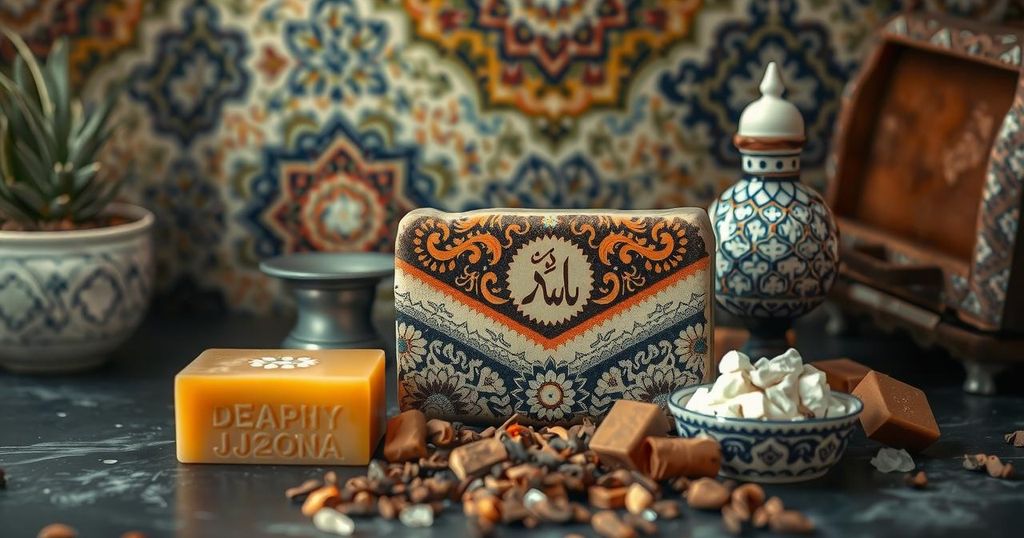UNESCO Recognizes Aleppo Soap Amid Ongoing Syrian Conflict
UNESCO has added Aleppo soap to its intangible cultural heritage list as Syria continues to face conflict. With a history of soap production spanning 3,000 years, this acknowledgment comes as the city experiences turmoil from recent attacks. Despite the reduced number of factories, the traditional craft remains crucial for community unity among artisans.
On December 4, 2024, UNESCO recognized Aleppo soap as part of its intangible cultural heritage amidst ongoing conflict in Syria. This traditional soap, made from olive and laurel oil, has been produced by artisans in Aleppo for approximately 3,000 years. Despite the city’s recent tumult, the recognition aims to preserve the traditional craft that has historically been significant for community cohesion. While the production of soap in Aleppo has dwindled significantly, with only ten factories remaining, this recognition underscores the cultural importance of the craft for families and communities engaged in its trade.
Aleppo, Syria’s second-largest city, has been a center for soap production for millennia, noted for its unique use of olive and laurel oil in crafting high-quality soap. The city, designated a UNESCO World Heritage site in 1986, faced significant damage due to the civil war starting in 2011. As the situation escalated recently with Islamist-led rebels gaining control, the recognition of Aleppo soap highlights a commitment to preserving cultural heritage even amidst conflict. The soap-making process is deeply rooted in the local community, relying on traditional methods and collaboration among artisans.
In summary, the addition of Aleppo soap to UNESCO’s intangible cultural heritage list serves as a vital recognition of the enduring traditions of this ancient craft amidst the severe socio-political challenges in Syria. By honoring such practices, UNESCO aims to foster community and family unity among those who continue to produce this historic product. The event reflects a broader commitment to safeguarding cultural identities during times of crisis.
Original Source: jordantimes.com




Post Comment